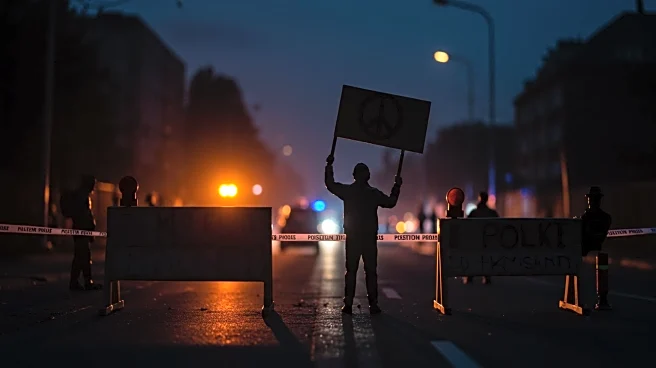What's Happening?
On August 13, tensions escalated in Northwest Washington as local and federal authorities established a checkpoint, drawing protests from onlookers. The deployment of federal law enforcement, including ICE agents, is part of President Trump's broader strategy to address immigration and security concerns. The presence of ICE agents at the checkpoint has sparked significant public outcry, reflecting ongoing national debates over immigration policies and enforcement tactics. Demonstrators expressed their opposition to the increased federal presence and the implications for civil liberties and immigrant communities.
Why It's Important?
The protests highlight the contentious nature of immigration enforcement under President Trump's administration. The deployment of ICE agents in urban areas raises concerns about civil liberties and the potential for racial profiling and wrongful detentions. This development is significant as it underscores the broader national debate on immigration policy and the balance between security and individual rights. The protests serve as a reminder of the deep divisions within American society regarding immigration and the role of federal law enforcement.
What's Next?
The protests may lead to increased scrutiny of federal immigration enforcement practices and could prompt further demonstrations. Political leaders and advocacy groups are likely to respond, potentially influencing public policy and legislative actions. The situation may also impact upcoming elections, as immigration remains a key issue for voters. Stakeholders, including civil rights organizations, may push for reforms to ensure that enforcement actions respect civil liberties and human rights.









